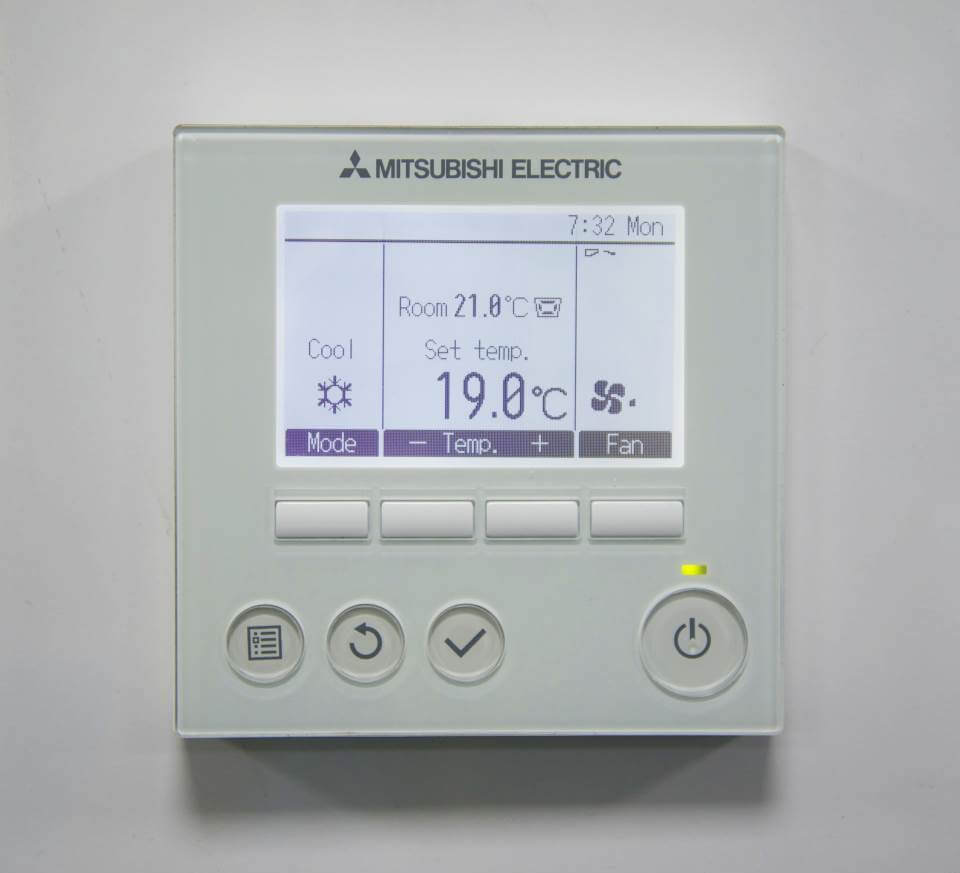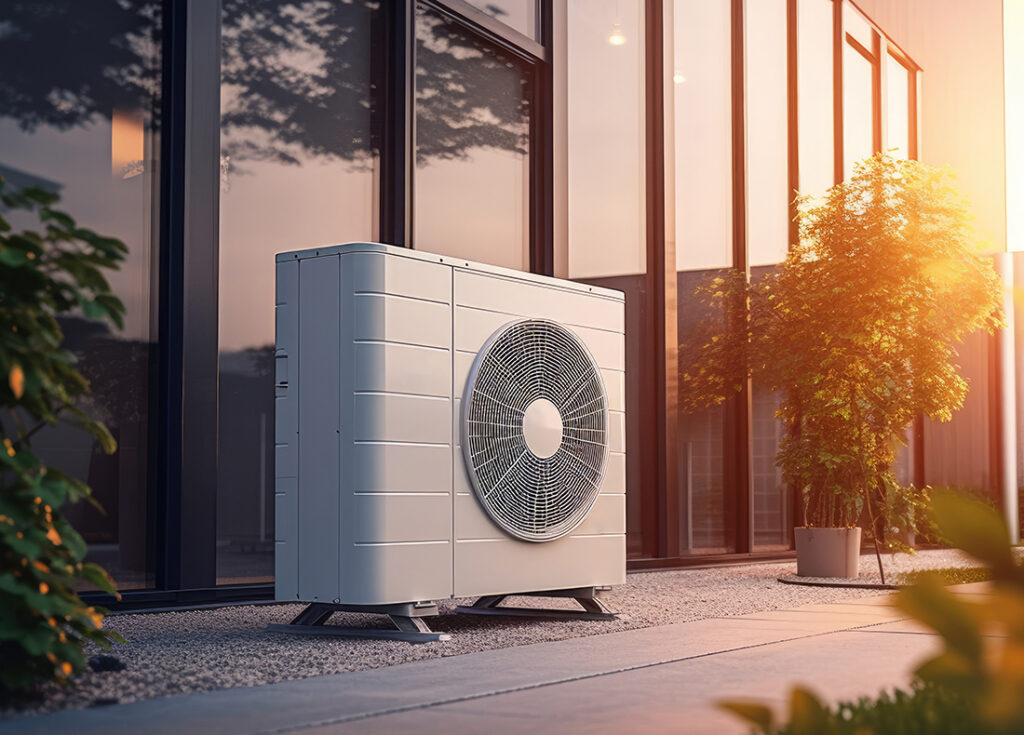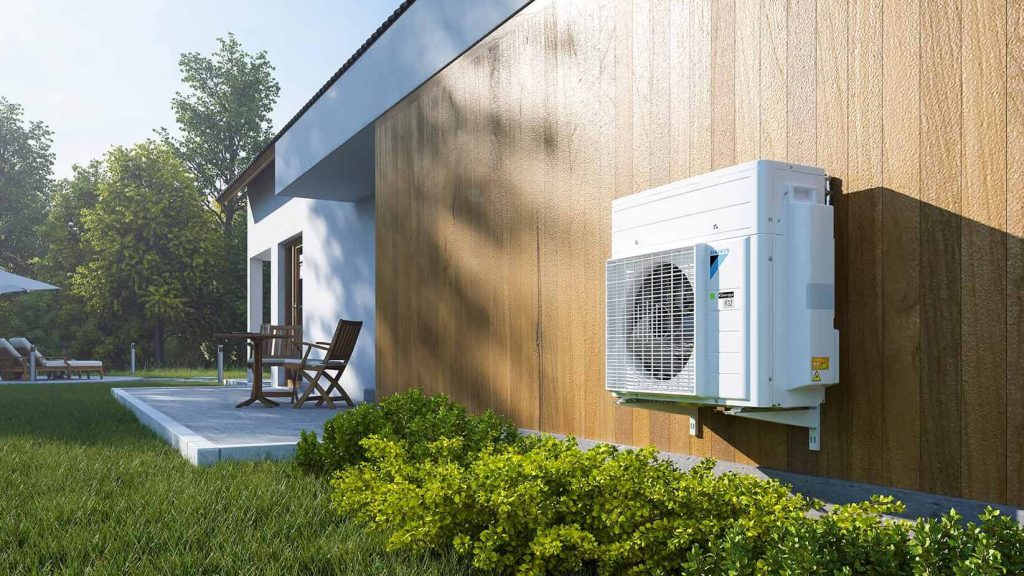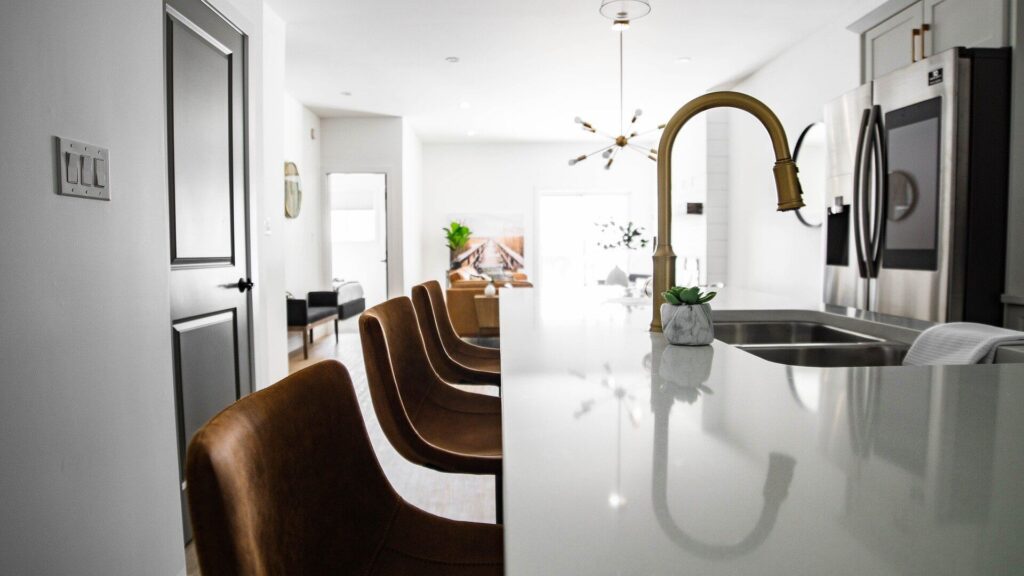How Air Conditioning Plays An Important Role in the Workplace
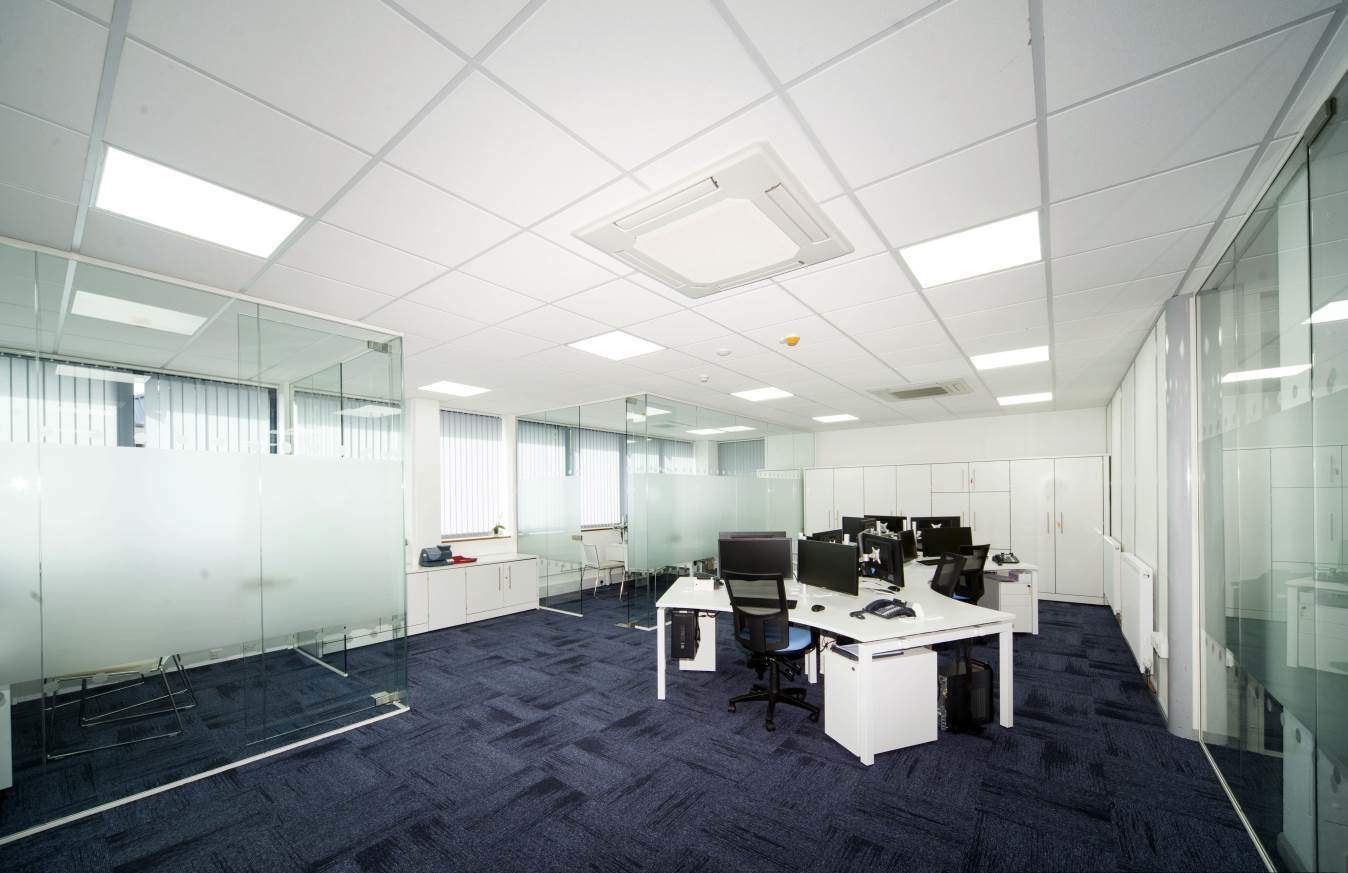
Estimated reading time 11 minutes
When it comes to the workplace, air conditioning plays a vital role in ensuring a happy, healthy workforce and in keeping business-critical equipment running. Creating an ideal work environment is important for every business. This goes beyond just controlling the temperature and humidity, although with today’s temperatures reaching all-time highs clearly temperature control is proving to be more and more important in any place of work.
The Many Benefits of Workplace Air Conditioning
With air conditioning comes a variety of business and employee benefits. When indoor temperature, humidity and air quality are controlled studies show that there is a positive impact on productivity and health and wellbeing as well as ensuring that equipment needed within a business has the right environment to keep working efficiently.
Some of the many impacts of poorly regulated indoor temperature, humidity and air quality include:
Thermal Comfort
Our thermal comfort is affected by a number of factors including the temperature of the air, the radiant heat from surrounding objects, air movement and speed, the humidity of the air, the clothing we’re wearing, our work rate and the metabolic heat being generated.
Air conditioning systems can impact some of the factors that affect thermal comfort. The UK Health and Safety Executive (HSE) state that employers should “provide a minimum working temperature in workrooms – usually at least 16°C or 13°C for strenuous work.” If the building temperature is not regulated and maintained at a temperature which provides thermal comfort the HSE go onto say that “people feeling uncomfortably hot or cold are more likely to behave unsafely. Their ability to make decisions and/or perform manual tasks deteriorates e.g., people may take short cuts to get out of cold environments; workers might not wear personal protective equipment (PPE) properly in hot environments, increasing the risks and a worker’s ability to concentrate may start to drop off, which increases the risk of errors.”
Humidity is also an important factor in thermal comfort. Most people immediately associate air conditioning systems with temperature control however air conditioning systems also dehumidify the air.
If humidity is high during a period of hot weather, it can make it even more difficult for the human body to cool down. In order to maintain our body temperature when the temperature is high, we perspire, which allows us to release some of our body heat into the air. When the air is humid it is already saturated with water which makes it more difficult for perspiration to evaporate. This in turn can lead to people overheating which can then result in heat stress, heart attacks, strokes and breathing issues.
A humid environment can also encourage condensation within buildings which may then support the growth of mould which can produce allergens and irritants. Breathing in mould spores can trigger a variety of allergic reactions, such as a runny nose, sneezing, a sore throat, coughing or wheezing, irritation to the eyed, skin rashes and asthma attacks.
Productivity
With the ever changing and unpredictable temperatures in the UK which are likely to continue to set record highs and lows, being able to maintain indoor temperatures will become increasingly important.
We all know just how difficult it is to work in an environment that’s either too hot or too cold. We are more likely to be concentrating on trying to cool down or stay warm than the work we should be doing when temperatures are outside our comfort zone.
Work by professor Lars Nybo, from the University of Copenhagen, Denmark found that “exposure to external heat in combination with physical activity, which elevates the body’s production of heat, can result in physiological changes that can diminish occupational performance, via reduced working endurance, vision, motor coordination and concentration. This can lead to more mistakes as well as injuries.”
A study “Room temperature and productivity in office work” carried out by the Lawrence Berkeley National Laboratory showed that “performance increases with temperature up to 21-22°C, and decreases with temperature above 23-24°C. The highest productivity is at temperature of around 22°C. For example, at the temperature of 30°C the performance is only 91.1% of the maximum i.e., the reduction in performance is 8.9%.”
Professor George Havenith, the Director of the Environmental Ergonomics Research Centre (EERC) at Loughborough University established that “Productivity drops by 76% throughout the workday when temperatures hit 40°C”. Professor Havenith explains: “These findings enhance our current understanding of the consequences of extended occupational heat exposure and provide evidence that can be used to more accurately predict the socio-economic burden of future extreme heat. A significant drop in productivity will have a significant impact on employee welfare and business output.”
According to the FMJ temperature debate “Temperature has a massive impact on your mood and can have a subsequent impact on your productivity and attitude towards work.” The article goes into say that higher temperatures are linked to “conflict increasing by 14%.” They also say that cold weather can have damaging consequences too including “insomnia, appetite changes, difficulty concentrating and even social withdrawal.”
Health and Wellbeing
High and low temperatures, humidity and air quality can all impact workers health and wellbeing. Many studies have shown that if temperature, humidity and air purity are not controlled it is detrimental to health.
It’s more likely that a workplace will be too hot than too cold however there may be some circumstances when the temperatures drops below the ideal workplace temperature. Where this happens, it can impact motor control, concentration and increase the susceptibility to illness.
We also know that extreme heat can result in heatstroke, heat exhaustion and hyperthermia (abnormally high body temperature) and cause health conditions such as respiratory disease, heart disease, cerebrovascular disease (affecting the blood vessels in the brain and cerebral circulation), and diabetes to worsen. In some cases, resulting in death.
With the recent UK heatwaves and Met Office amber alerts the Science Media Centre published an “expert reaction to UK hot weather and an Extreme Heat Warning issued by the Met Office” where a number of experts were quoted regarding the impact of temperature on health. Dr Dann Mitchell, Joint Chair in Climate Hazards, University of Bristol, said: “Extreme heat is linked to a number of direct, and indirect health issues. Direct effects, such as heat stroke and cardiovascular failure impact especially the elderly and more vulnerable populations, but indirect effects such as suicide rates, poorer mental health, and car crashes also increase, across all age groups.” Dr Vikki Thompson, Senior Research Associate, School of Geographical Sciences and Cabot Institute for the Environment, University of Bristol, explains: “Heat waves can have devasting impacts on human health. In the summer of 2020 heatwaves led to an estimated total excess mortality of 2,556. Of these excess deaths 2,244 were in the 65+ years group. Hot weather causes deaths due to cardio and respiratory problems caused by increased strain on the heart and lungs.”
Research carried out by American Journal of Respiratory and Critical Care Medicine found that “airway resistance” (a measure of how easy it is to breathe) was higher in people with asthma after they experienced humid air (49°C and 75–80% humidity). The results showed that people with asthma had a much higher (112%) increase in airway resistance when compared to a 22% increase in airway resistance in people without asthma. High humidity can create the perfect environment for the growth of mould which can also trigger asthma symptoms.
Low indoor humidity can lead to a drying of the skin, lips, eyes and respiratory tract which can cause mucous membranes to dry out resulting in dry skin, itchy eyes and sore, scratchy dry throats. As the nasal passages dry out this also leaves you more susceptible to other illnesses as the nose’s ability to trap viruses decreases resulting in an increased risk of cold and flu infections. One of the causes of sick building syndrome is thought to be due to low humidity (as well as other factors).
Poor indoor air quality can affect our health and lead to serious health conditions. Public Health England’s Health matters: air pollution looked at chemical and environmental hazards state that “poor air quality is the largest environmental risk to public health in the UK, as long-term exposure to air pollution can cause chronic conditions such as cardiovascular and respiratory diseases as well as lung cancer, leading to reduced life expectancy.” This is backed up by the UK government’s Office for Health Improvement and Disparities which states that “indoor air pollution is also an important source of exposure. The average person spends around 80% of their time indoors and therefore, exposure to indoor air pollution is important to consider.”
Poor air quality can also trigger conditions like asthma. Asthma and Lung UK states that “Some types of air pollutants can get deep into the lungs and cause inflammation.”
Clifford Bassett, MD, founder and medical director of Allergy and Asthma Care of New York and author of The New Allergy Solution states: “If you’re someone who has indoor allergies, having A/C could actually help filter out some of the pollen, mould, and pollution that are in the air, which could make your symptoms more tolerable.”
Safety
While UK law does not set a minimum or maximum working temperature, as previously mentioned, the HSE state that employers should “provide a minimum working temperature in workrooms – usually at least 16°C or 13°C for strenuous work.” We know that too low or too high a temperature in the workplace can lead to unsafe working practices.
It’s interesting to note that in the US working temperatures shouldn’t pass 24ºC, Spain sets the upper working temperature at 27ºC for indoors and 25C for physical work and Germany has the cap at 26ºC.
With ever rising temperatures in the UK there are calls for the UK government to introduce a maximum temperature for working indoors. Last summer the Guardian article “We’ve reached boiling point – nobody should have to work in temperatures above 30C” made the same point.
Caring For Critical Equipment
In any business where there is critical equipment, air conditioning can provide a reliable way to maintain the temperature to prevent equipment (and staff) from overheating enabling the equipment to continue to work effectively.
Computers, servers, printers etc. all generate heat and need to be kept cool to prevent breakdowns. An office air conditioning system can help to maintain the office temperature so that office equipment works to its maximum efficiency. In the case of areas like server rooms the air conditioning can take heat and humidity away, dispersing that energy elsewhere, ensuring your business-critical equipment is safe.
Synecore
Synecore are approved installers of the industry’s leading office air conditioning products by Mistusbishi Electric, Daikin and Toshiba in Kent, London, Surrey, Sussex, Essex. For peace of mind, we offer a seven-year parts and labour warranty on all branded air conditioning systems we install and a 24/7 call out service for emergency office air conditioning repairs, should your system develop a fault. Our customers also benefit from our 7 year warranty when they sign up to our cost-effective air conditioning planned preventative maintenance plan that offers complete peace of mind.
Planned preventative air conditioning maintenance will ensure your air conditioning is working efficiently and effectively to ensure your buildings temperature, humidity and air purity are as they should. It will address any issues before they become major problems saving you time and money in the long term.
Synecore offer air conditioning planned preventative maintenance (PPM) packages to suit your business and the size of your premises, overseen by an experienced project manager so you know you are in good hands. Your PPM includes scheduled visits throughout the year, as often as is required to keep your system efficient and compliant.
If you are looking to install a new air conditioning installation or need to replace an old system contact our team or call on 01795 509 509. We’ll talk you through your options and provide you with expert advice on the right office air conditioning system for your business.
